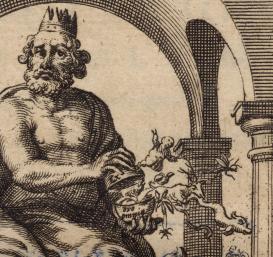Our research approach lies in considering the epistemic negotiations of voluntary and involuntary dynamics and stabilizations. What are the dominant patterns between premodern scientific experience and its contexts? What influences can be found between these diffusive and interactive spaces? How and why did these developments influence (trans-)formations of premodern scientific ideals and practices of experience?
Research is undertaken through three large "Themes in Focus," each of which embraces different working groups and individual projects:
- Epistemic Qualities of Experience, with the working groups Premodern History of Signification, Experiential Knowledge in the Premodern Islamic Context, and Experiencing Nature around the Globe
- Premodern Experience as a Network, with the working groups Experience in Translation, Confessionalization of Medicine, The Eurasian Life of a Botanical Classic, Wisdom in the Syriac World, and Albert the Great on the Human Being
- Premodern Experience in Conversation with the Present, with the working groups Scientific Questions Then and Now and Knowing Nerves
Each working group, comprising 10–15 researchers, meets repeatedly over the course of three to five years to prepare a state-of-the-art volume in its area.
Additionally, the Research Group is curating a long-term, collaborative online project, The Virtual-Classroom Sourcebook: A Global History of Experience, which presents difficult-to-access primary sources for the global history of premodern experience in the sciences of soul and body.

